Beijing, June 26, 2025 — As artificial intelligence continues to reshape modern finance, industry leaders gathered in Beijing for the latest edition of DolphinDB’s D-Day, an event focused on the intelligent transformation of the Fixed Income, Currencies, and Commodities (FICC) value chain. Co-hosted with the FICCPKU Club, the event brought together nearly 100 professionals from finance, technology, and academia to explore how AI is reshaping trading, risk management, and investment strategies.
From infrastructure innovation to market strategy, the day’s discussions underscored a common imperative: the need for more agile, intelligent, and data-centric systems in response to increasingly complex and volatile markets.

Reimagining Infrastructure for Real-Time Finance
The event opened with a keynote from Dr. Xiaohua Zhou, Founder and CEO of DolphinDB, who laid out a forward-looking vision for AI-driven financial infrastructure. He introduced Orca, DolphinDB’s real-time computing platform built for institutional finance. Orca addresses the challenges of fragmented multi-asset data modeling by offering a unified abstraction for instruments, trades, and market data, greatly simplifying system complexity and improving data usability.
The platform ensures real-time consistency across distributed systems, eliminating delays and synchronization issues common in traditional architectures. Dr. Zhou also highlighted Orca’s built-in pricing and valuation engine, which supports front-, middle-, and back-office functions through a single, extensible interface. To enable faster innovation, Orca allows users to define custom instruments and metrics, supporting rapid deployment of new strategies without vendor dependency.
He further introduced a new AI-native framework that integrates data, business logic, and models—paving the way for intelligent, scalable systems that can respond instantly to market dynamics.
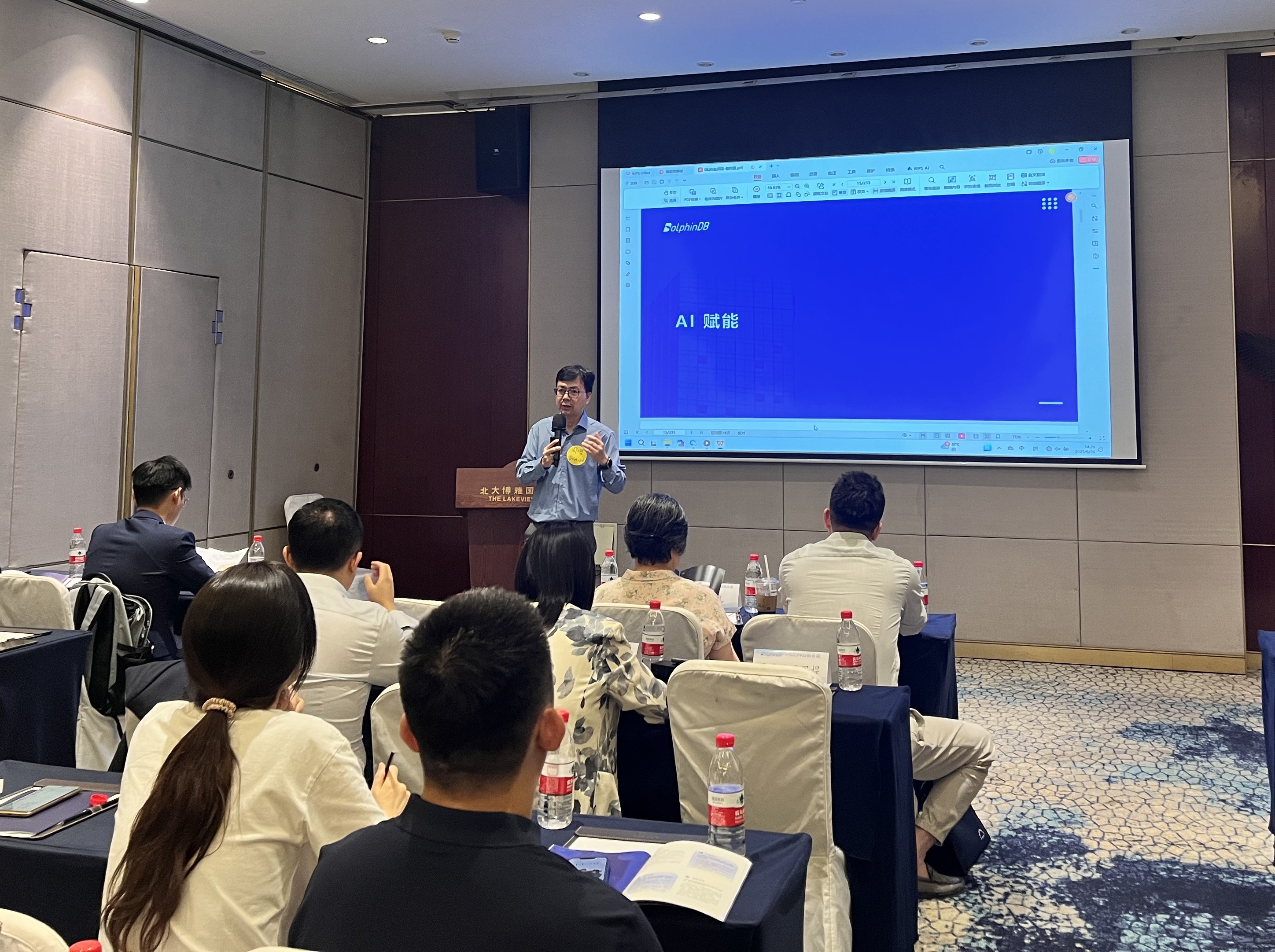
Insights from Academia and Industry
Prof. Lan Wu of Peking University shared cutting-edge research on the use of reinforcement learning in OTC markets. Despite the inherent complexity of OTC trading—such as product heterogeneity and asymmetric information—she argued that reinforcement learning's adaptive and interactive nature makes it a promising tool for optimizing decision-making in dynamic trading environments.
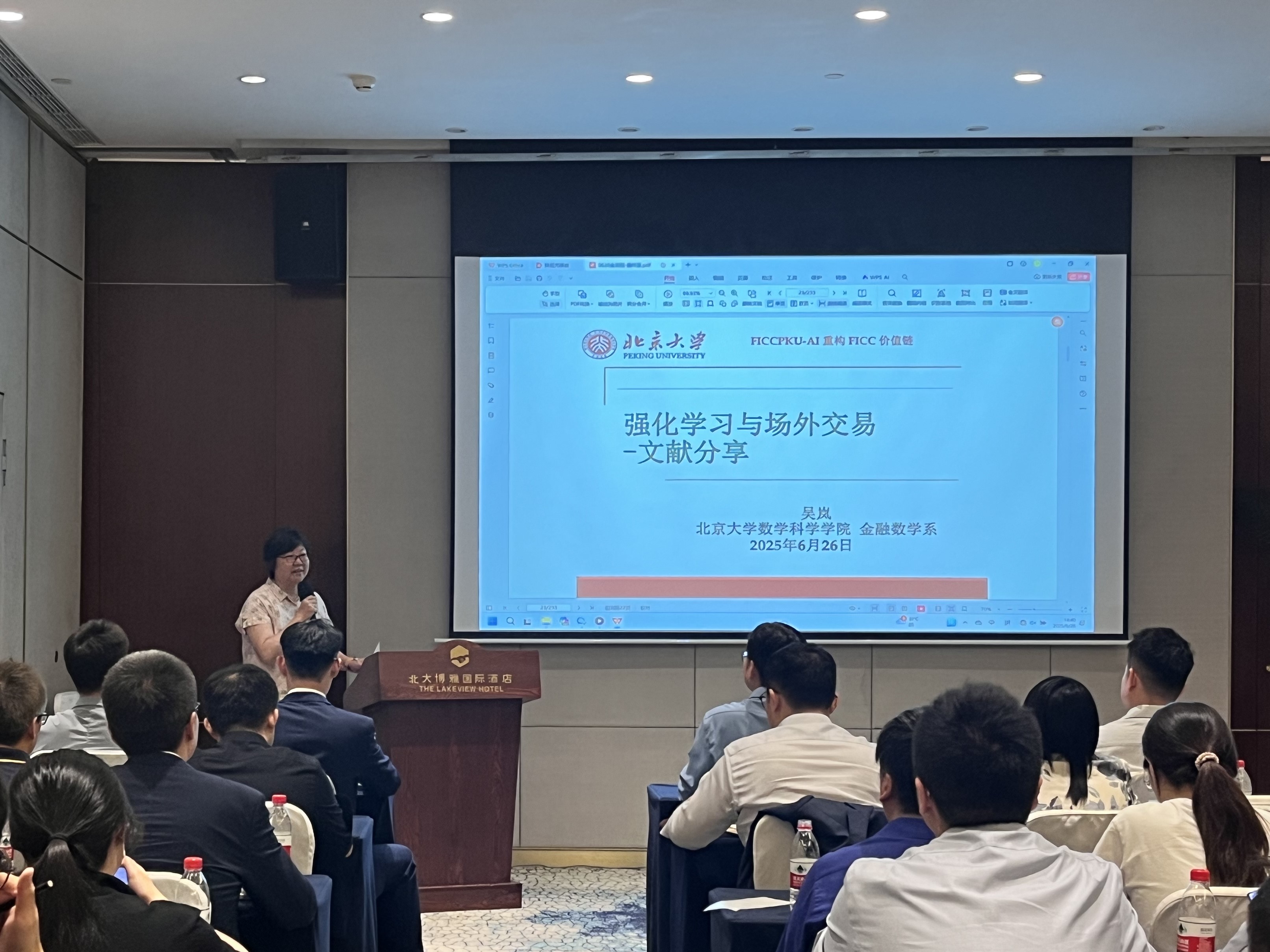
On the practitioner side, Bo Sun, who leads the quantitative FICC team at Shenwan Hongyuan, offered a deep dive into bond market strategies powered by technology. His team employs a blend of directional and arbitrage approaches, with a focus on basis and spread dynamics. By constructing portfolios from multiple low-correlation sub-strategies, they aim to manage risk exposure while capturing market inefficiencies.
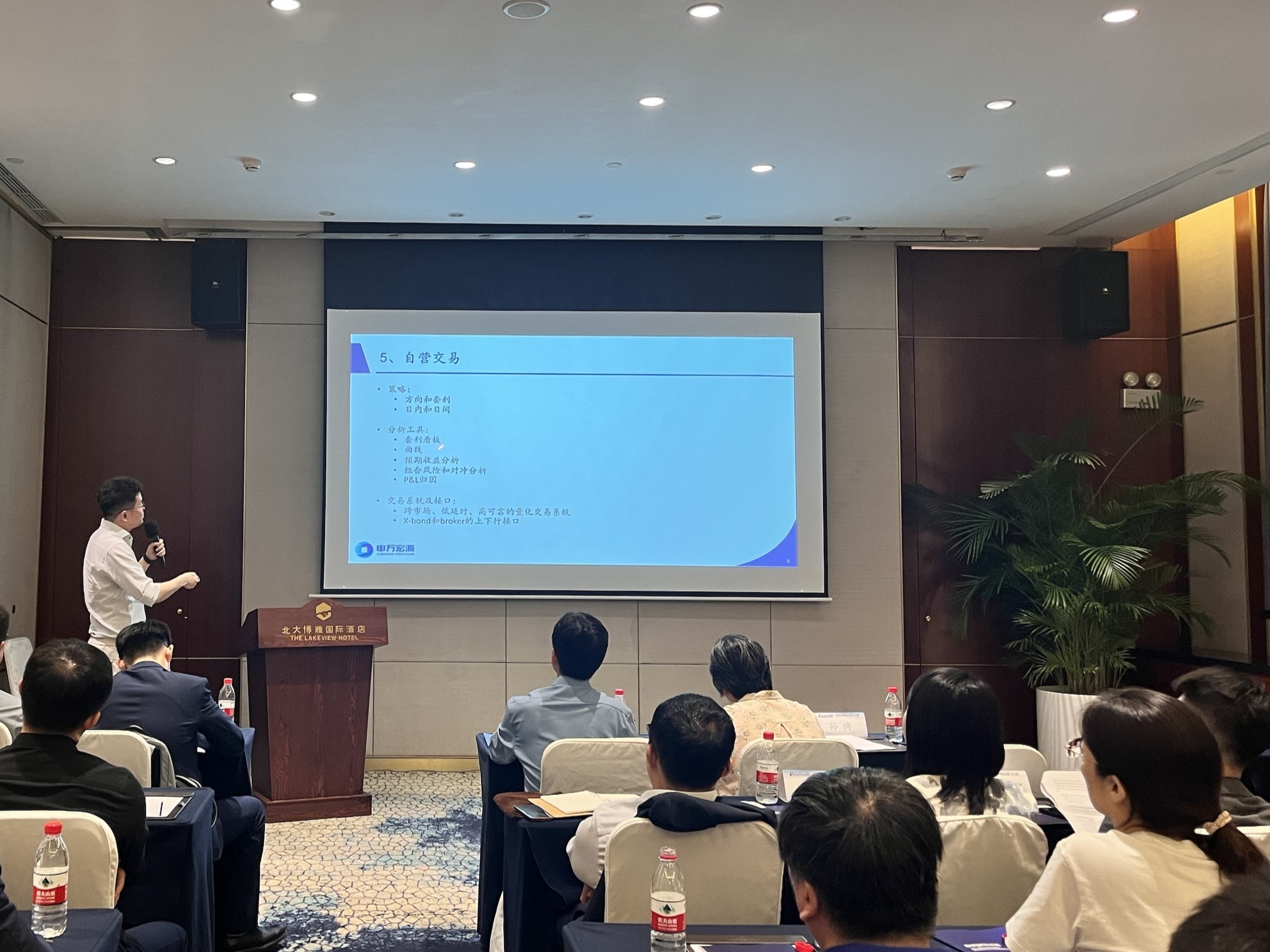
Navigating the Low-Rate, High-Volatility Landscape
The second half of the event was marked by recurring discussions on interest rate volatility and yield compression.
Lulu Wei, Deputy General Manager at CICC Research, warned of ongoing pressure on fixed income funds due to declining deposit rates and shifting liquidity patterns. Drawing comparisons to global markets, she advised asset managers to anticipate further outflows and adapt portfolio structures accordingly.

From Dongxing Fund, Fixed Income Head Ismayil Mehmet provided a broader macroeconomic perspective. He pointed to weakening real estate investment, declining bank liability costs, fiscal uncertainties, and trade tensions as structural factors reshaping bond market dynamics. He stressed the importance of monitoring both macro and micro-level signals to adjust strategies proactively.
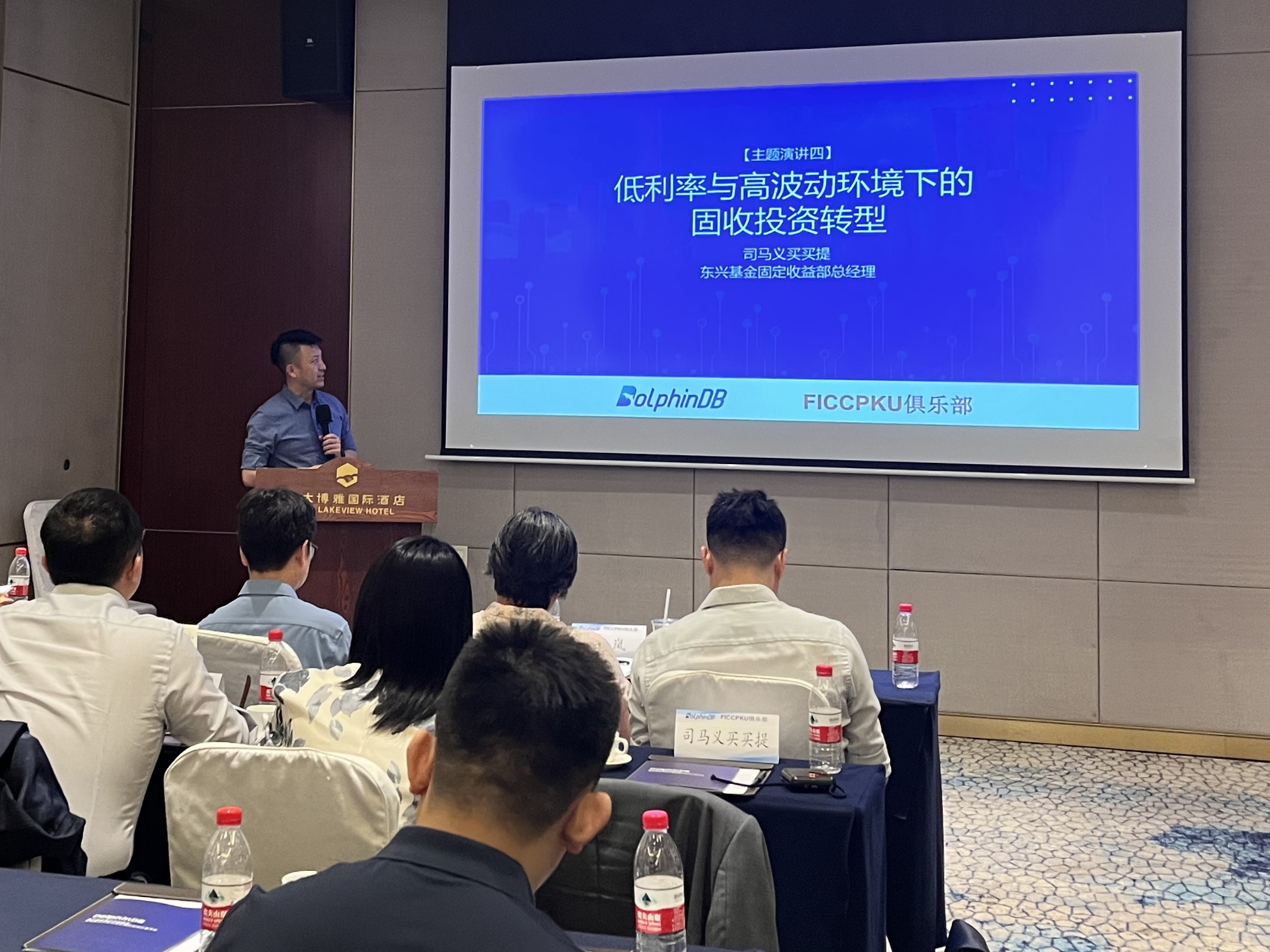
Toward Multi-Asset and Derivatives Intelligence
Closing out the event, Dr. Yunfei Ma from China Minsheng Bank outlined a robust framework for multi-asset, multi-level fixed income strategies. Combining macroeconomic indicators with tools like interest rate swaps, futures, and curve trades, his approach leverages both cross-asset insight and quantitative techniques. He also underscored the growing importance of real-time decision support systems powered by AI, especially as product complexity and risk interdependencies deepen.
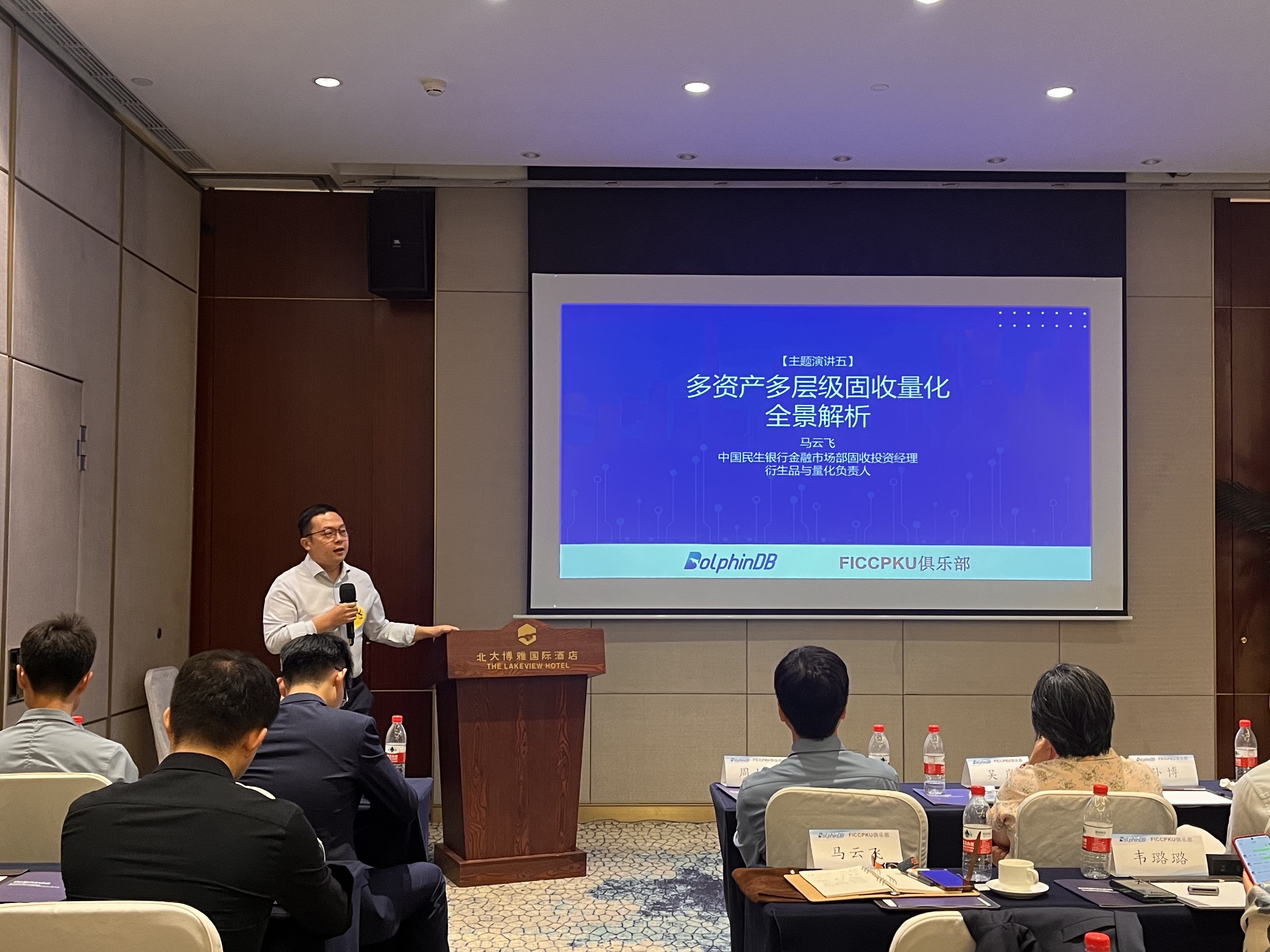
Looking Ahead
In his closing remarks, Dr. Zhou emphasized the role of cross-disciplinary collaboration in shaping the future of intelligent finance. He invited attendees to continue the conversation at the upcoming DolphinDB Annual Summit in September.
About D-Day
D-Day is a professional event series launched by DolphinDB to promote open dialogue on how technology can drive innovation in quantitative research and investment. Events are held regularly in major Chinese cities, including Beijing, Shanghai, Guangzhou, and Shenzhen. For collaboration or participation inquiries, please contact info@dolphindb.com.